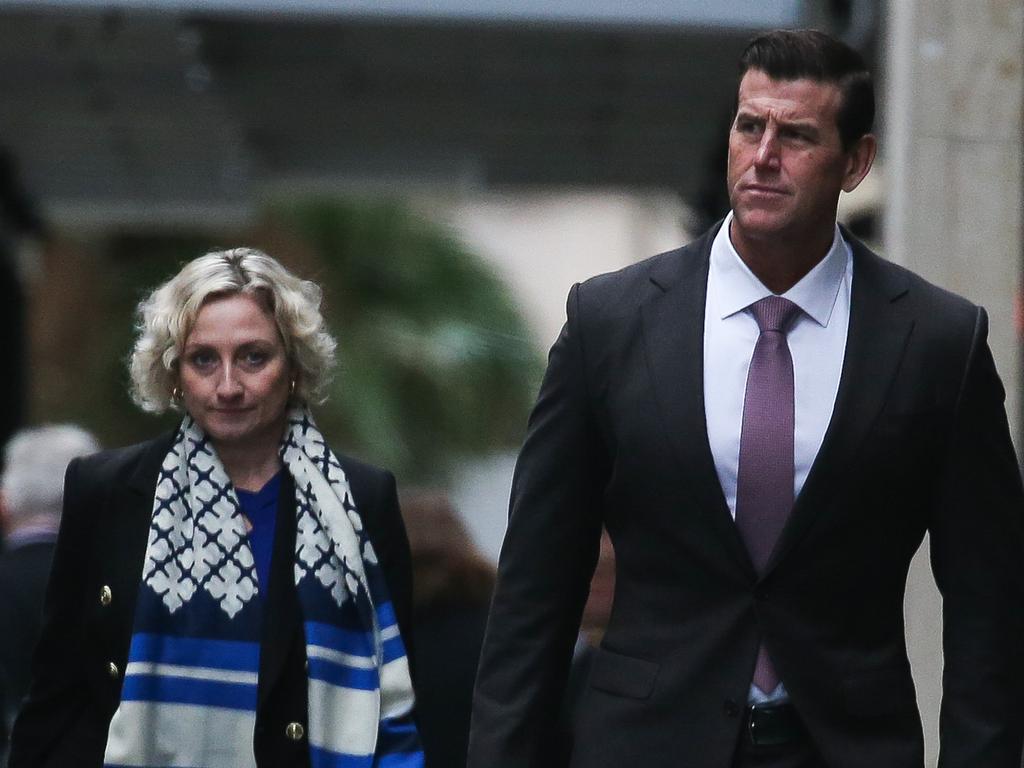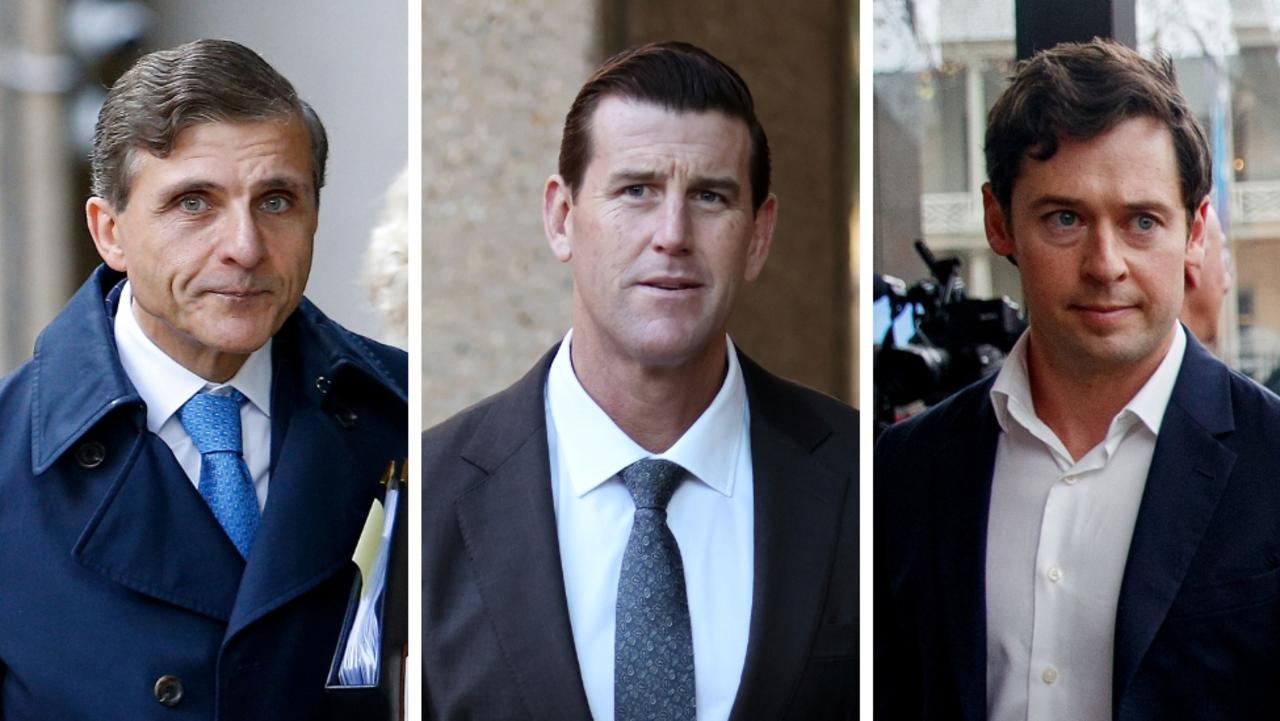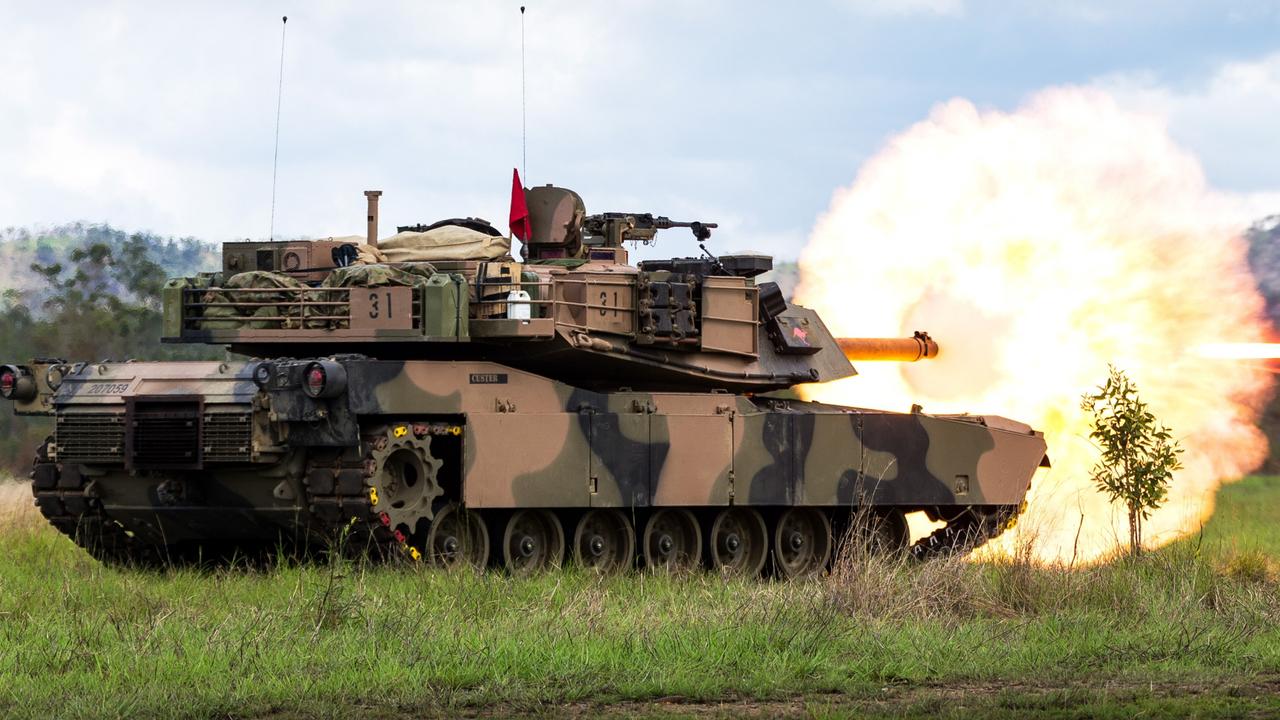War crimes investigators want access to Ben Roberts-Smith defamation case secret file
Investigators have launched legal action to obtain documents from Ben Roberts-Smith’s failed defamation case for possible use in a future trial.
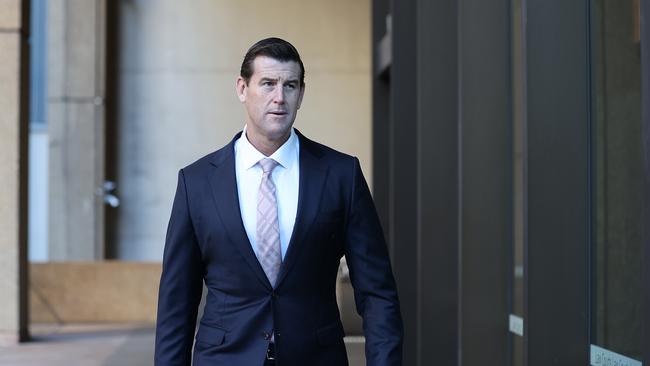
Federal investigators are poised to access secret files from Ben Roberts-Smith’s failed defamation case in a development that indicates prosecutors intend to use previously undisclosed evidence from the trial about the killing of unarmed prisoners in a future war crimes trial.
A letter sent by the Australian Government Solicitor on Friday to both sides in the defamation case, seen by The Australian, says the Office of the Special Investigator – the agency set up to investigate war crimes by Australian soldiers in Afghanistan - requires access to the case’s Sensitive Court File.
The OSI’s chief function is to develop briefs of evidence for referral to the Commonwealth Director of Public Prosecutions.
The highly protected Sensitive Court File contains hundreds of classified documents and photographs, the identities of all the Special Air Service witnesses in the case and transcripts of evidence given in closed sessions of the trial, including by Mr Roberts-Smith himself.
So tight was security around the closed court sessions that all mobile phones and other electronic devices were banned, with documents transported in locked briefcases and high-level security clearances required even for court transcribers.
Any electronic devices containing sensitive documents not returned to the restricted file “are to be destroyed and/or sanitised in accordance with commonwealth requirements”, under the strict security regime.
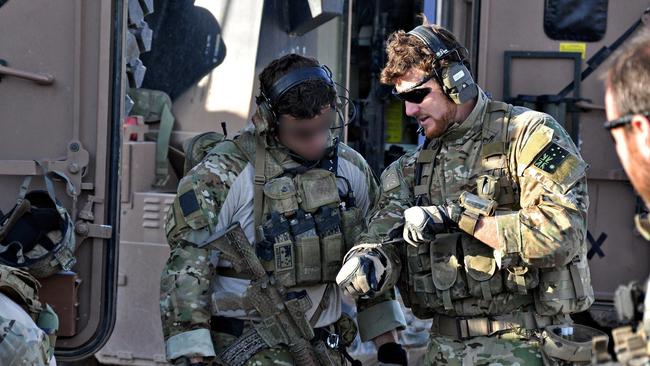
The OSI’s bid to obtain the files underscores the disastrous consequences of Mr Roberts-Smith’s decision to launch the defamation action, with critical evidence about the conduct of both the Victoria Cross recipient and the SAS witnesses who gave evidence on his behalf opened for scrutiny by investigators and prosecutors.
Earlier this month, judge Anthony Besanko ruled in the Federal Court that Mr Roberts-Smith had committed murders of civilians, including of Ali Jan, a farmer kicked off a cliff in the village of Darwan, and a one-legged man dragged from a tunnel at the compound known as Whiskey 108.
The Government Solicitor says the OSI – which has teamed up with the Australian Federal Police for a new inquiry codenamed Operation Emerald – now requires access to the Sensitive Court File “in order to properly complete its investigations”.
Although much of the evidence in the trial was given in public, access to the Sensitive Court File will provide prosecutors with a wealth of material not previously available under the terms of the original order.
It also allows them to compare testimony given to bodies such as the Inspector-General of the Australian Defence Force with evidence given in closed court by witnesses in the defamation case, as they look for discrepancies in multiple eye-witness accounts.
At least 50 pages of Justice Besanko’s final judgment had to be delivered in closed court, such were the sensitivities and national security concerns of some evidence. The published judgment contains more than 100 – often obscure - references to evidence given in closed court.
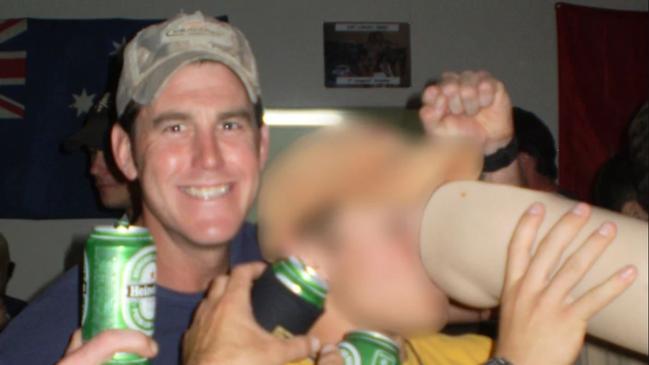
The government’s latest move was predicted by Nine’s lawyers in a 2020 offer to Mr Roberts-Smith’s lawyers to settle the case, revealed earlier this month by The Australian, warning that the defamation trial would be closely observed by the OSI and the AFP, “in effect providing the prosecution a dry run at prosecuting your client”.
The settlement offer, which would have allowed Mr Roberts-Smith to walk away with only his own costs, was rejected.
The Australian Government Solicitor’s letter, sent to MinterEllison partner Peter Bartlett, acting for Nine, and defamation specialist Mark O’Brien, acting for Mr Roberts-Smith, leaves little doubt that the erstwhile war hero and his tight-knit band of comrades-in-arms are the central target of the OSI’s reinvigorated probe.
AGS senior executive lawyer Kristy Alexander notes that “we are instructed that there is overlap between the subject matter of the OSI’s investigations and the subject matter of these proceedings”.
One former SAS soldier and second-in-command to Mr Roberts-Smith, known in court as Person 5, admitted in court that a group of soldiers led by the pair face five murder allegations currently under investigation, including three in other incidents not part of the newspapers’ allegations.
The AGS seeks amendments to orders made at the beginning of the trial under the National Security Information Act, under which highly secret documents and information were required to be placed on the restricted court file.
The OSI has not to date accessed the file, although the AGS says the war crimes agency could arguably already be permitted to do so as an “authorised person” under the statute.
It is likely Nine newspapers will accede to the request, while lawyers for Mr Roberts-Smith are expected to strongly oppose the application.
Any amendments to the existing orders will have to be signed off by Attorney-General Mark Dreyfus.
Access to the secret material could be a game-changer for an investigation that has been hit by delays and missteps.
The AGS application comes just a week after it was revealed the five-year AFP inquiry into Mr Roberts-Smith’s alleged involvement in the execution of three Afghan detainees had been abandoned because investigators may have unwittingly used tainted evidence.
The decision by the CDPP not to prosecute Mr Roberts-Smith on evidence gathered during the AFP probe, first reported in Nine newspapers, has led to the formation of a taskforce known as Operation Emerald.
The taskforce comprises detectives from the OSI and a new team of federal police investigators not connected to the abandoned AFP inquiry.
The tainted AFP probe had focused on the two centrepiece allegations in the defamation trial.
One was the alleged execution of two Afghan prisoners found hiding in a secret tunnel at the compound known as Whiskey 108 on Easter Sunday in 2009. The other was the incident in which Mr Roberts-Smith allegedly participated in the murder of farmer Ali Jan in September 2012.
Justice Besanko ruled in the $30m defamation case that the former soldier was, on the balance of probabilities, involved in those killings.
Mr Roberts-Smith’s lawyers are currently assessing the prospects of an appeal.
Leading silk Bret Walker SC is understood to be examining the judgment, but most legal experts believe the chances of an appeal succeeding are slim, with the case having been largely decided by Justice Besanko on the “substantial truth” of the allegations, leaving little room to argue mistakes of law.
It is also unclear whether Mr Roberts-Smith’s chief benefactor, billionaire media mogul Kerry Stokes, will be willing to throw more money at the case.
Mr Roberts-Smith has resigned from his position as general manager of Mr Stokes’s Seven Network in Queensland.
In his only comment after the decision, Mr Roberts-Smith said: “It was a terrible result and obviously the incorrect result. We will look at it and consider whether or not we need to file an appeal.
“We just have to work through it and I’ll take the advice as it comes,” he said.





